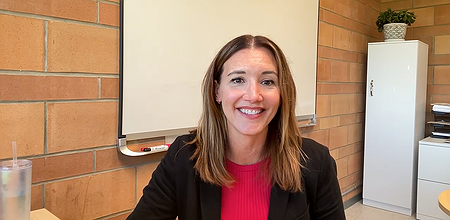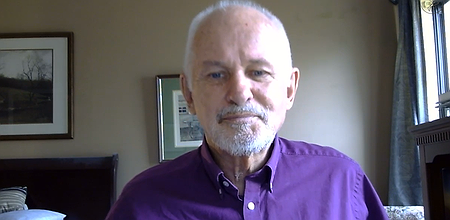- Define types of trauma and PTSD and the effects on mental health
- Identify the neurobiological changes in the brain and body and how neuroscience-informed care can help develop more targeted interventions
- Use evidence-based interventions to ensure effective and appropriate interventions
- Implement methods for teaching clients how to influence emotional response, integrate sensory information, and modulate decision-making, attention and memory
Neuroscience-Informed Treatment of trauma and PTSD
Dr. Janene Donarski, Licensed Clinician Psychologist
Transform complex brain science into effective clinical interventions for lasting client recovery
Excerpt:
- 4h30 of continuing education
- 33 lessons that last from 5 to 15 minutes each
- 1 certificate of achievement
- 1 PowerPoint
- 1 bibliography
- 1 course evaluation
- 7-day money back guarantee
- Unlimited access
- 97% of participants who completed the satisfaction survey declare they would recommend this course to a colleague
Overview
Working with trauma survivors requires nuanced clinical strategies that reflect the growing body of research on trauma’s neurobiological impact. As clinicians, we are increasingly tasked with integrating these neuroscientific insights into established therapeutic approaches while sustaining a strong therapeutic alliance.
This advanced training offers a neuroscience-informed framework for the treatment of trauma and PTSD, bridging contemporary research with direct clinical application. It is led by Dr. Janene Donarski, Licensed Clinical Psychologist with over 20 years of specialized experience in neuropsychology and trauma treatment.
By examining how trauma alters brain structures and stress response systems, you will enhance your capacity to design targeted, evidence-based interventions that address both neurobiological and psychological dimensions of trauma.
Through this training, you will:
- Refine clinical assessment by integrating neurobiological markers of trauma for more precise intervention planning
- Strengthen the use of evidence-based protocols through a deeper understanding of the neural circuits underlying trauma responses
- Apply practical neuroscience-informed techniques across therapeutic modalities including CBT, EMDR, and exposure-based treatments
- Enhance therapeutic engagement by explaining trauma’s neurobiological mechanisms in accessible ways that improve client motivation and outcomes
By transforming complex neuroscientific concepts into concrete clinical tools, this training equips you to deliver more effective, scientifically grounded trauma treatment.
Accreditation
Collège des médecins du Québec
For physicians who practice psychotherapy, training recognized by the Ordre des psychologues du Québec is automatically considered as activities adopted by the Collège des médecins, in accordance with Article 3 of the Regulation.
For physicians who do not practice psychotherapy, the College evaluates each recognition request based on the following criteria:
- the relevance of the activity to the practice of the profession
- the skills and experience of the trainer
- the quality of the content and its adequacy with the physician's practice
- the pedagogical framework of the activity
- the quality of the documentation provided
- compliance with the training objectives set out in the regulation
- the presence of a certificate of participation or an evaluation
About the expert

Dr. Janene Donarski, PhD, LP, CCATP, ECDCS is a Licensed Clinical Psychologist with over 20 years of specialized experience in neuropsychology and trauma treatment. She brings extensive expertise in:
Clinical Specializations: - Neuropsychological assessment across the lifespan - Trauma and anxiety treatment - Veterans and military family care - Forensic psychological evaluation
Advanced Certifications: - EMDR Level II practitioner - Clinical Anxiety Treatment Professional (CCATP) - Evergreen Dementia Care Specialist - Certified Hypnotherapist - Neuro-Linguistic Programming practitioner
Dr. Donarski serves on the board for Clinical Anxiety Treatment Professionals certification and has trained mental health professionals for over a decade. She is the author of "Anxiety & Trauma Recovery Book: Using a Neuroscience-Informed Treatment Response to Healing" and maintains an active private practice specializing in complex behavioral and neurological conditions.
Learning objectives
Learning material
A theoretical course illustrated with clinical examples. This course is composed of videos of 5 to 15 minutes each. The PowerPoint of the course to download.
Syllabus
- PowerPoint
- 1. Introduction
-
Understanding Trauma and Anxiety
- 2. Definition and Types of Trauma
- 3. Effects of Trauma and-or PTSD
- 4. The Origins of Trauma
- 5. The Neurobiological Reaction
- 6. Brain Structures
- 7. Amygdala and the Sympathetic Nervous System
- 8. Trauma and Anxiety
-
Clinical Assessment and Treatment Foundations
- 9. Clinical Screenings and Evidenced-Based Interventions
- 10. Treatment Preparation
- 11. Paradoxical Therapy
- 12. Acceptance Over Avoidance
- 13. Diaphragmic Breathing
- 14. Self-Care Assessment
- 15. Safety Behaviors
-
Exposure Models and Cognitive-Behavioral Strategies
- 16. Exposure Therapy- Models and Types
- 17. Different Exposure Therapy
- 18. Goals for Exposure & Personalized Interventions
- 19. Tips for Treatment Effectiveness
- 20. EMDR
- 21. CBT Part I
- 22. CBT Part II
- 23. Reframe Anxiety
- 24. Narrative Therapy
- 25. Acceptance and Commitment Therapy
- 26. Neuroscience Key Strategy and Identifying the Con
- 27. DBT
- 28. Self-Compassion
- 29. AWARE Observation Skills and Homework
- 30. The Panic Cycle
- 31. Inhibitory Mismatch and Non-Linear Hierarchy
- 32. What Else to Consider
- 33. Conclusion
- Bibliography
-
Additional Resources
- Handout - ABCWorksheet
- Handout - Challenging Questions
- Handout - Identifying Emotions
- Handout - Patterns of Problematic Thinking
CE Credits
Download a certificate of successful completion.
Audience
This course is intended for mental health professionals.
Registration
Ask a question
Do you have a question? Then email us at contact@asadis.net
Frequently asked questions
-
Is there an evaluation at the end of the course?
To validate the achievement of the learning objectives, a final evaluation in the form of true/false questions is required. It must be completed in order to obtain the certificate of completion.
In addition, an optional self-assessment is offered at the beginning and end of the course, allowing you to measure your progress on the targeted skills.
These evaluations are not graded and are intended primarily to support your professional reflection.
-
I have a disability. Can I receive specific support?
Yes! This training is offered as a pre-recorded video format, without subtitles. If you have a disability, we can provide an adapted alternative (technical assistance for viewing or individual supervision). For any request, please contact our disability coordinator at the following address: contact@asadis.net
-
How long do I have access to the course?
After your registration, the course is accessible anytime and from anywhere with unlimited access.
-
When does the course start?
That is entirely up to you! When you buy a course, you'll receive an access link that you can activate when you want.
-
Is there a student rate?
Yes there is! To learn more, email us at contact@asadis.net.
You may also be interested in:
Legal notice
The courses offered by ASADIS are accredited by different professional organisations. In addition, ASADIS is approved by the Canadian Psychological Association to offer continuing education for psychologists. ASADIS maintains responsibility for the program.
The CPA’s approval of an individual, group, or organization as a CE Sponsor or Provider is restricted to the activities described in the approved application or annual report form. The CPA’s approval does not extend to any other CE activity the Sponsor or Provider might offer. In granting its approval, the CPA assumes no legal or financial obligations to Sponsors, Providers, or to those individuals who might participate in a Sponsor or Provider’s CE activities or programs. Further, responsibility for the content, provision, and delivery of any CE activity approved by the CPA remains that of the CE Sponsor or Provider. The CPA disclaims all legal liability associated with the content, provision, and delivery of the approved CE activity.






